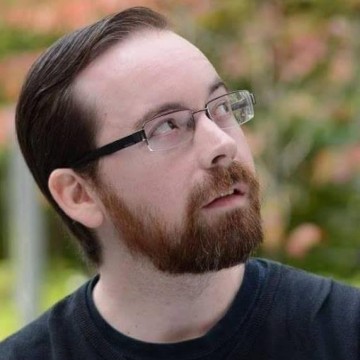The Best Multiverse Movies
Multiverse movies come in a multitude of styles. Here are the best ones.
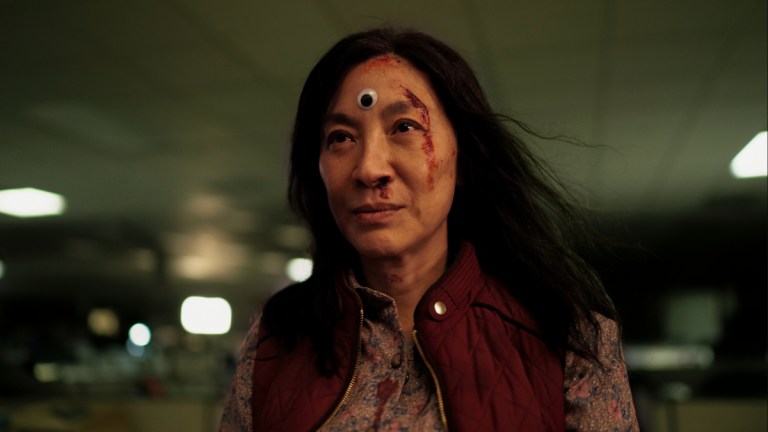
The existence of a multiverse may be unproven in science, but it is fertile ground in the realm of cinema. The idea of a multiverse gained tremendous traction in popular culture thanks to superhero movies like Spider-Man: Into the Spider-Verse (2018), Avengers: Endgame (2019), and a brief scene in Batman v. Superman: Dawn of Justice (2016). However, a version of a parallel universe on film arguably dates as far back as The Wizard of Oz (1939).
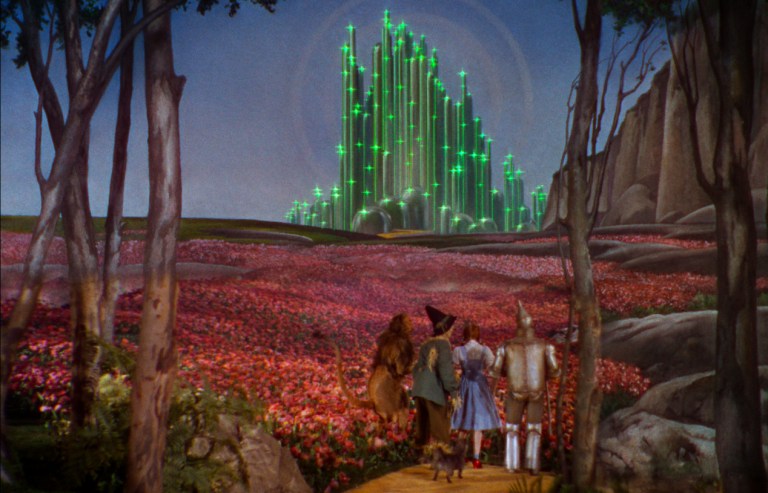
Just like a multiverse of infinite possibilities, multiverse movies come in a wide variety of genres. Most have at least a touch of sci-fi in the form of time travel or dimension hopping, but the movies can also contain drama, horror, comedy, adventure, and much more. Collected here are some of the best examples of movies where a multiverse plays a pivotal role in the plot.
Ten Great Multiverse Movies
Event Horizon (1997)
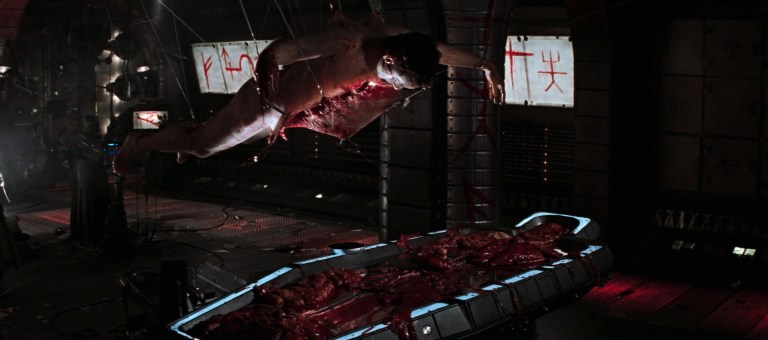
Cosmic horror and gore fill the multiverse in Paul W.S. Anderson’s excellent science fiction horror film Event Horizon. Sam Neill plays Dr. Weir who joins Captain Miller (Laurence Fishburne) and his crew to investigate the reappearance of a starship that had been lost in deep space years earlier. Miller’s crew discovers that the ship was transported to a dimension filled with unspeakable horrors, and it brought something back with it. Event Horizon is easily one of the best horror movies of the 1990s.
Run Lola Run (1998)
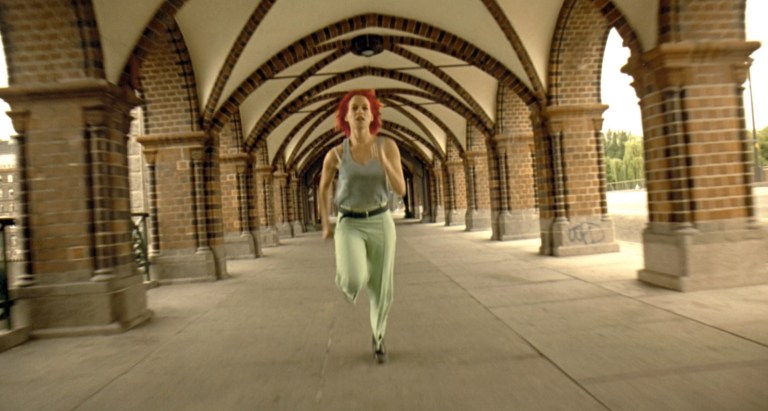
Run Lola Run is a brilliant German crime thriller that shows how slightly different choices can lead to greatly different results. The movie follows Lola (Franka Potente) as she desperately tries to raise 100,000 Deutschmarks in under 20 minutes in order to save her criminal boyfriend Manni (Moritz Bleibtreu). Lola’s efforts don’t ever go according to plan, but the universe gives her multiple chances at success as her 20-minute scramble starts over whenever she fails. It may sound like science fiction, but the way Run Lola Run is structured makes it an experimental meditation on determinism more fit for an arthouse theater than a multiplex.
The One (2001)
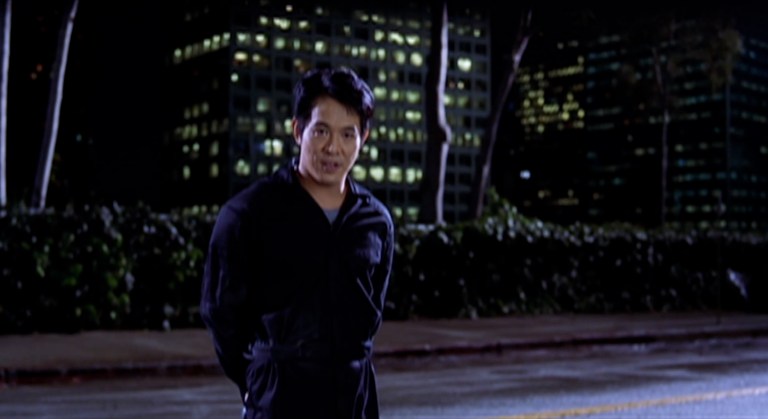
Jet Li battles Jet Li for Jet Li supremacy in The One. Li plays Gabriel Yulaw, a man on a mission to kill every alternate version of himself across the multiverse so he can absorb their life forces and become all-powerful. Meanwhile, in a universe much like our own, Gabe Law (also Li) has been gaining powers he doesn’t understand. Law is the final variant on Yulaw’s kill list, and Law is going to be the biggest challenge for the greatest fighter in the multiverse. The One is campy action gold from one of the greatest movie martial artists of all time.
Triangle (2009)
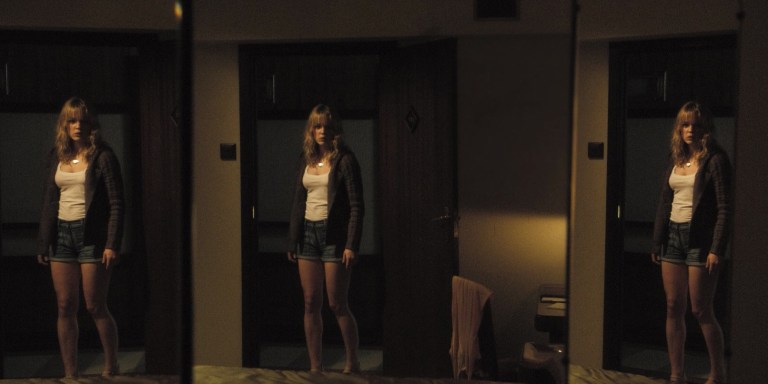
A group of people are stuck in a time anomaly aboard a ghost ship in Triangle (2009). The movie stars Melissa George as Jess, a single mother who joins a group of people for a day of sailing. A freak storm capsizes their boat, but most of them make it on board an ocean liner that appears to be abandoned. Without giving too much more away about this extremely clever horror movie, viewers learn about the ship from Jess’s perspective as she encounters multiple versions of herself, all of who are trying to escape the time trap they’ve found themselves in. Triangle is strong on psychological horror with a mysterious masked killer giving it a bit of a slasher movie aesthetic.
Star Trek (2009)
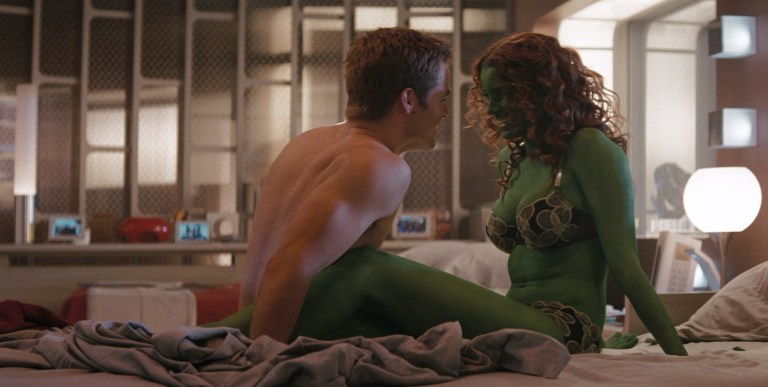
J.J. Abrams Star Trek is a reboot done right. Alternate realities have been part of the Star Trek franchise since the original series in the 1960s. So when it came time for the film series to voyage back to theaters with a new cast, it made since to retain the franchise’s rich history by creating a branching timeline rather than simply starting over from scratch. Chris Pine plays an alternate version of James T. Kirk whose path to becoming Captain of the USS Enterprise feels quite different than that of William Shatner’s Kirk. Ensuring that this is indeed a multiverse movie and not just a time travel film, there is a fantastic encounter between the new Spock (Zachary Quinto) and the original Spock (Leonard Nimoy) late in the movie.
Mr. Nobody (2009)
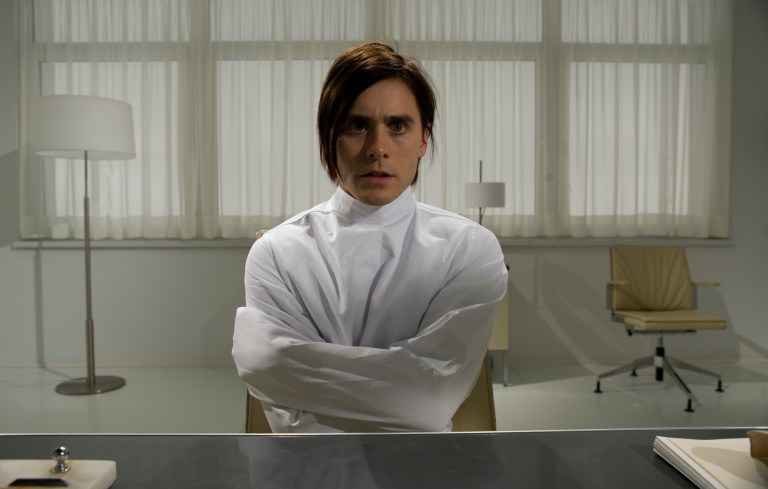
Though the setup for Mr. Nobody is based in science fiction, the movie is really an almost lyrical look at the choices we make and how different our lives could be. Nemo Nobody (Jared Leto) is 118 years old, and he is about to die of old age in a world where science has has all but stopped aging. The world is curious about Nemo, so he tells the story of his life. However, Nemo remembers not just the life he lived, but also the lives he could have lived. Perhaps he lived none of the lives he tells, or perhaps he lived all of them. The answers aren’t as important as the choices and the emotions they evoke in this emotional arthouse film.
John Dies at the End (2012)
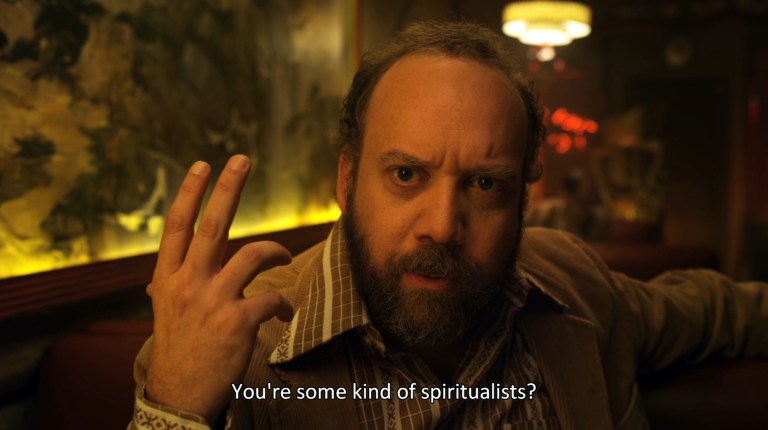
Based in the web serial turned novel of the same name by Jason Pargin (aka David Wong), John Dies at the End is a bizarre horror comedy that can be difficult to summarize succinctly. Basically, there is a drug called “Soy Sauce” that grants users superhuman knowledge while shifting them through alternate dimensions. Friends Dave and John get mixed up in a strange series of events that lead to a biological supercomputer named Korrok attempting to take over our dimension. Director Don Coscarelli described the tone of the original John Dies at the End novel as a “mash-up of Douglas Adams and Stephen King,” and the movie adaptation feels a lot like that as well.
Spider-Man: Into the Spider-Verse (2018)
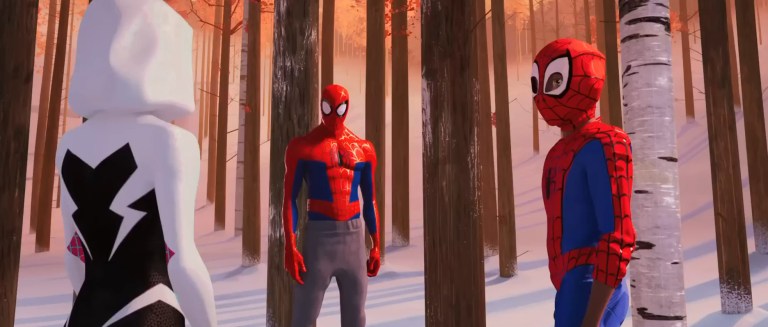
Miles Morales was an ordinary teenager living in New York City until a radioactive spider bite gave him superpowers somewhat similar to the city’s hero, Spider-Man. When Spider-Man is killed, Miles tries to honor his legacy by becoming the new Spider-Man, and on his journey he encounters a number of other Spider-People brought together from different dimensions. Spider-Man: Into the Spider-Verse is fun and inventive, and it provided a fantastic alternative to the increasingly sprawling shared universes of Marvel and DC.
Happy Death Day 2U (2019)
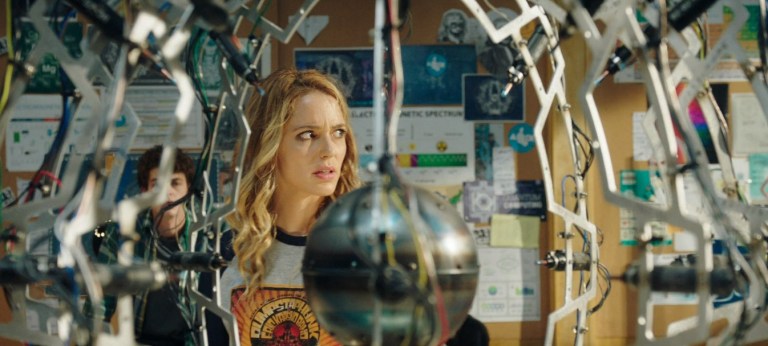
Tree (Jessica Rothe) thought she’d survived her Groundhog-Day-style time loop of death by finding out who wanted her dead, but that was just the beginning. Happy Death Day 2U has Tree get closer to finding out how and why she was stuck living the same day over and over again, but matters are complicated by the fact that now she isn’t just looping through time, she’s also stuck in a parallel dimension. Happy Death Day 2U is from director Christopher Landon who also did Freaky (2020) and Scouts Guide to the Apocalypse (2015).
Spider-Man: No Way Home (2021)
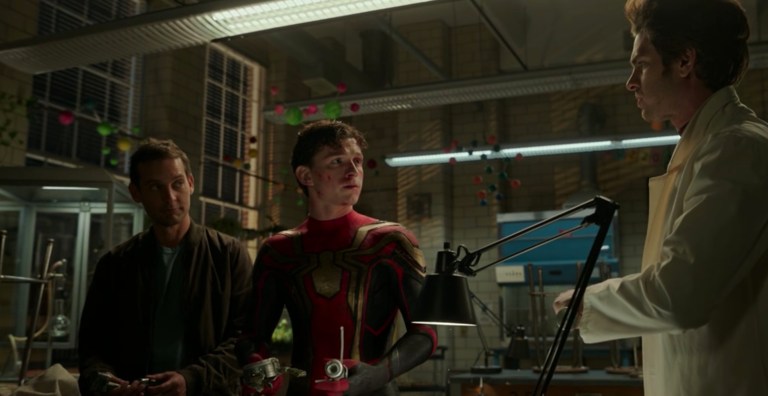
Spider-Man: No Way Home isn’t the first time Marvel has used the multiverse as a plot device, but it may be the most satisfying, especially for long-time Spider-Man fans. Spider-Man’s (Tom Holland) identity as Peter Parker is revealed to the world, so he goes to Dr. Strange (Benedict Cumberbatch) for help. Strange’s spell goes wrong (thanks to Peter), and a rift in the multiverse opens. Beloved heroes and villains from across every Spider-Man live-action film since 2002 then come together as Peter 1 (Holland), Peter 2 (Tobey Maguire), and Peter 3 (Andrew Garfield) try to put things right without causing any more damage.
Everything Everywhere All at Once (2022)
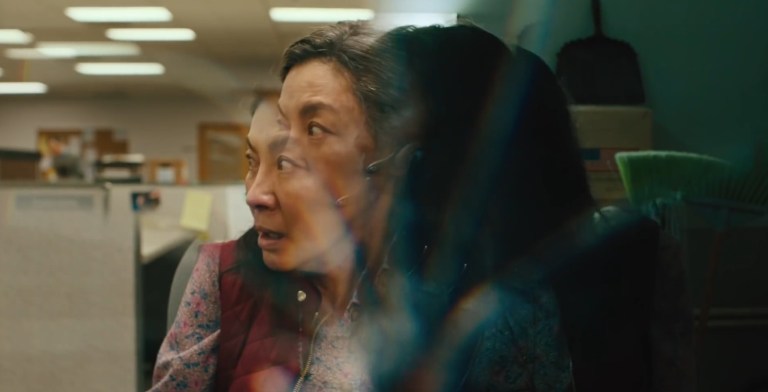
Michelle Yeoh must save the multiverse in the fantastically wacky Everything Everywhere All at Once. Yeoh is Evelyn Wang, a woman whose personal and professional lives are coming apart. Unknown to her, Evelyn also exists across multiple parallel universes where she lives vastly different lives. There is someone within the multiverse who wants to destroy everything, and it comes down to Evelyn to borrow skills and powers from other, more successful versions of herself in order to save everything and everywhere from destruction. If it sounds bonkers, it is, but it’s also amazing.
Doctor Strange in the Multiverse of Madness (2022)
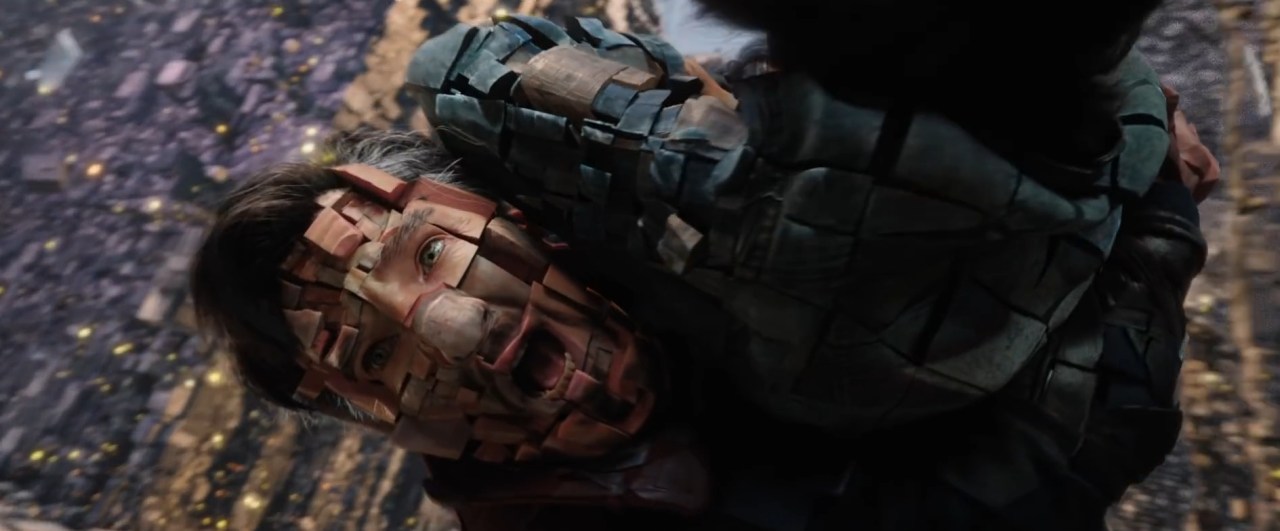
Sam Raimi returned to superhero movies with Doctor Strange in the Multiverse of Madness. The movie is technically a sequel to Doctor Strange (2016), but with as many appearances as Stephen Strange (Benedict Cumberbatch) has had in other MCU movies, his multiverse adventure acts like a sequel to a bunch of different stories. Regardless of the various connections in and out of the movie, Doctor Strange and the Multiverse of Madness tells a contained story about a multiverse-hopping teenager, America Chavez (Xochitl Gomez), whom Strange tries to protect from someone who wants to take her power from her.
Spider-Man: Across the Spider-Verse (2023)
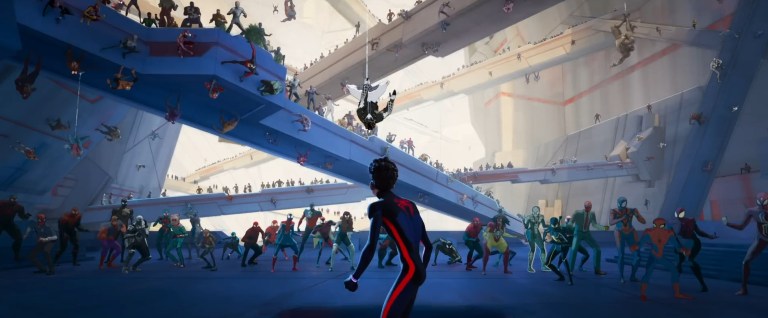
Spider-Man (Shameik Moore) joins Spider-Woman (Hailee Steinfeld) on a journey through the Spider-Verse (a multiverse centered specifically on various versions of Spider-People and other related beings) in this excellent sequel to Spider-Man: Into the Spider-Verse. Spider-Man aka Miles Morales learns more about the nature of the Spider-verse and how his actions could destroy entire dimensions, but his sense of justice and his personal feelings lead him into direct conflict with Spiders who have taken it supon themselves to protect reality.
The Flash (2023)
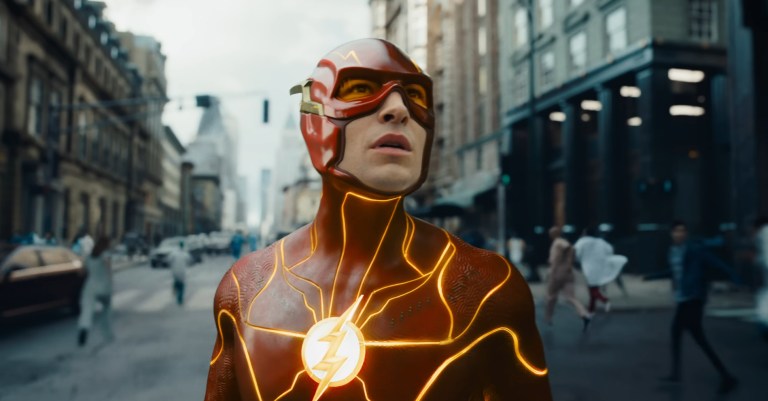
The Flash was released in June of 2023 amid an upheaval in the DC Extended Universe (DCEU) in which the movies starring characters like Batman, Superman, and Wonder Woman were changing their future directions. The Flash was seen as a way to possibly facilitate those changes. In the movie, Barry Allen (Ezra Miller) aka The Flash, goes back in time to save his mother from being murdered. In doing so, Barry causes a ripple that affects the future, the past, and everything else in every direction of space-time. In trying to make things better, Barry and his past/alternate self make things worse and begin to unravel the entirety of existence across every alternate universe. The movie, at its heart, is about learning to accept the past and how it shapes us.
